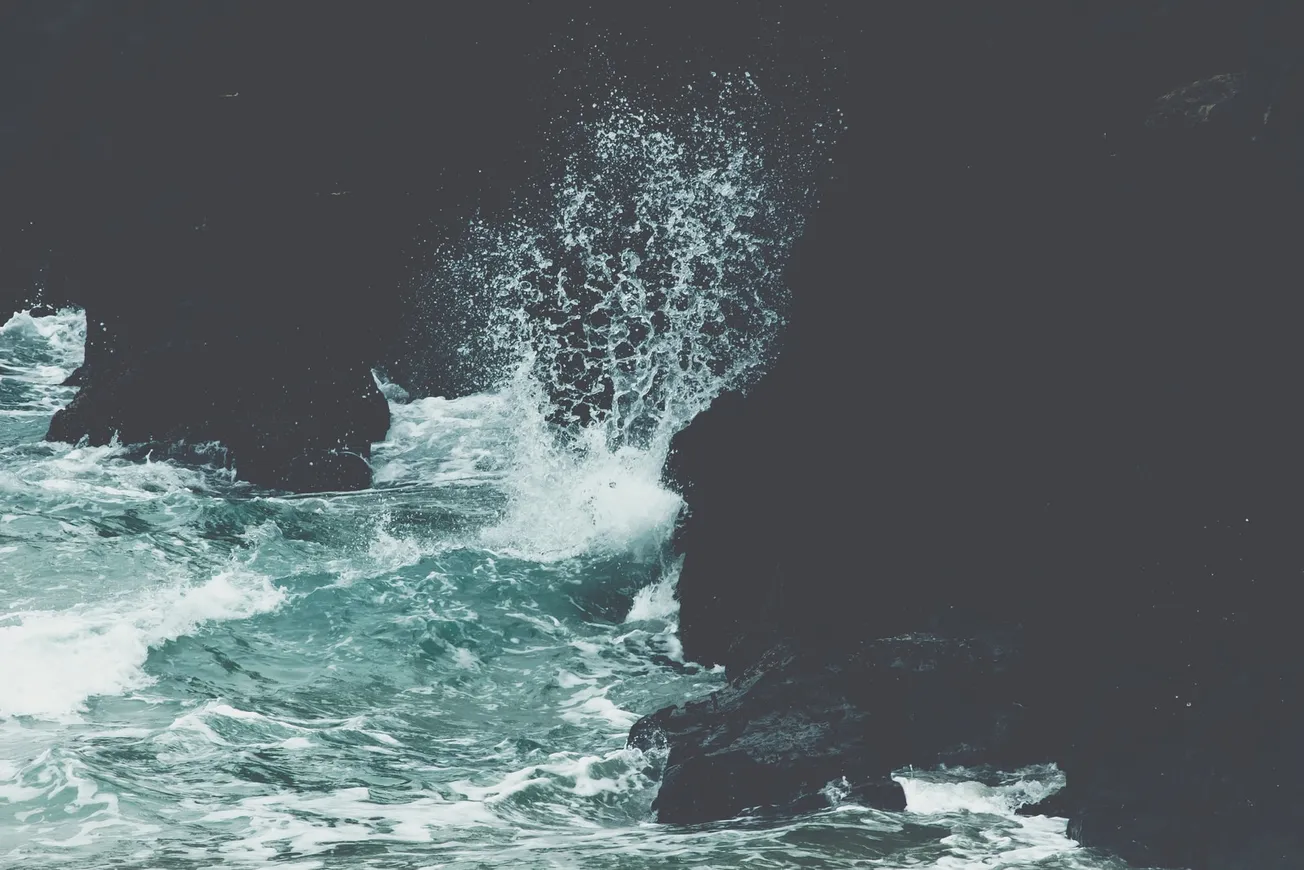Table of Contents
Dr Muriel Newman
nzcpr.com
Dr Muriel Newman established the New Zealand Centre for Political Research as a public policy think tank in 2005 after nine years as a Member of Parliament. A former Chamber of Commerce President, her background is in business and education.
Warning
Long Read. 2117 words.
Public opinion is turning against Jacinda Ardern and her Government. Recent polls show the trend is now for National to pull ahead of Labour, with the Prime Minister’s popularity continuing to decline.
National will be heartened by their progress. Labour will be looking for answers.
They don’t need to look far. Their unpopular Three Waters policy is back in the news as a result of the publication of a report from the Multi-Party Working Group that was set up by the Government in response to accusations that their consultation with councils was a sham.
While Local Government Minister Nanaia Mahuta appears resolutely determined to push her water policy through, opposition is growing, as New Zealanders recognise the real purpose of the reform is to gift control of water infrastructure and services to the tribal elite.
Three Waters is an important part of Labour’s radical He Puapua ‘partnership’ agenda to replace New Zealand’s democracy with tribal rule by 2040. This policy blueprint was developed in 2019 but kept hidden from the public until after the 2020 election.
He Puapua is based on the bizarre claim that the Treaty of Waitangi created a 50:50 “partnership” between Maori tribes and Queen Victoria. Not only is it constitutionally impossible for the Crown to enter into a partnership with her subjects, but even former Prime Minister David Lange is described as ridiculing the notion: “He really didn’t believe that Queen Victoria had signed a treaty of equality and partnership with ‘500 thumbprints’.”
The bottom line is that under Labour’s co-governance agenda for tribal control, 50 percent of democratically elected members representing the wider public interest will be replaced by the unelected representatives of multi-million-dollar iwi business development corporations, to represent their interests only – and not be answerable to the wider community. Once iwi have 50 percent of the decision-making power, even though they represent only a minority of New Zealanders, they will collectively have a voting bloc and an effective right of veto – the public will forever be at their mercy.
Since New Zealand’s constitutional conventions require major changes to democratic representation to only be undertaken through widespread consultation and express public approval, it can be argued that because Jacinda Ardern deliberately avoided seeking a public mandate for He Puapua at the 2020 election, the whole tribal control agenda is unconstitutional and illegitimate.
That means policies designed to replace democratic rights with tribal vetoes, that are part of He Puapua, such as Three Waters and the Pae Ora health reforms, are “ultra vires” and unlawful, since they represent a major constitutional change without the consent of the public.
And that’s a fundamental problem for Three Waters. Furthermore, the Government’s justification for confiscating almost $100 billion of assets from councils is dishonest and does not stand up to scrutiny. Their promised financial benefits projected over 30 years use bogus claims that are unrealistic and based on an assumption that accumulated debt will never need to be repaid, when the real objective is tribal control.
So, not only were New Zealanders deceived by the Government not informing them at the election of their plan to give control of water to muti-million tribal corporations, the PM has still not told Kiwis whether they will be forced to pay iwi a royalty every time they turn on their tap.
Minister Mahuta needs to take responsibility for much of the suspicion and distrust over Three Waters. Along with the Prime Minister, she assured councils the scheme would be voluntary, only to later announce it would be compulsory. She authorised a $3.5 million propaganda campaign of lies, aimed at discrediting councils and deceiving the public by claiming the country’s water quality was so substandard, that only the government could fix it.
Compounding the problem was the lack of council representation on the 12-member co-governance boards of the four proposed regional water entities, whereby 6 members were to represent up to 23 councils supplying water infrastructure and services, while the other 6 would represent iwi.
The Minister’s solution, as set out in her draft Bill, was to expand board membership to have “an equal number of representatives of the territorial authority owners and mana whenua”. This highlights how absurd the whole proposal really is, and how fixated Minister Mahuta is on passing control of water to iwi, since, the South Island’s Entity D, for instance, would have a board of 46 members – 23 representing the 23 councils in the region, with the other 23 members largely representing Ngai Tahu!
So, what did the Three Waters Working Group come up with?
As could be expected from a group stacked with nine mostly pro-Three Waters Mayors, nine iwi, and terms of reference that prevented any critical examination of the controversial tribal co-governance provisions, many of their 47 recommendations endorsed the Government’s proposal. One suggestion, aimed at giving the appearance that councils still ‘owned’ their water assets, was to issue shares to local authorities based on their populations. Since the shares would carry no voting rights, they would however, be little more than symbolic.
Many of the recommendations were made by iwi, who are clearly determined to make the most of this once in a lifetime opportunity to take over control of the country’s water services and ensure it delivers them the maximum possible benefits. They are calling for the Maori World view of water to be ‘embedded’ in the community and to guide all “decision making, planning, governance, accountability, and service delivery”. They want it all stitched up, so the Maori influence completely dominates the control of water within New Zealand – no doubt setting the scene for a successful claim for the ownership of water itself.
Auckland’s Mayor Phil Goff was the only member of the Working Group to dissent. His minority report states:
“Democratic accountability, through elected representatives, to people who funded the water infrastructure in Auckland valued at many billions of dollars, and who continue to pay for its operation, is critical. It is not appropriate to cede control over this infrastructure to other councils and mana whenua and to remove existing accountability to Aucklanders through elected representatives.”
In a statement condemning Three Waters as a “massive asset grab”, former Deputy Prime Minister Winston Peters accused those making ‘co-governance’ demands of abusing ordinary Maori by pretending they will be the beneficiaries, when it’s the iwi elite who will pocket the gains:
“Sadly, the mass majority of ordinary Maori working hard and paying their taxes have been made the stalking horse in these apocalyptic proposals. Like so many other elitist proposals, demands have been made in the name of ordinary Maori whilst the benefits will go straight to a small Maori elite.”
With co-governance set to deliver significant rewards to iwi leaders, they are pushing hard to ensure their ‘partnership’ deceit is embedded in law so the benefits flow in perpetuity. And thanks to the backing of Labour’s fifteen-member Maori Caucus, real progress is being made in elevating iwi rights over the equal rights of all citizens.
This can be seen in Labour’s support for the Canterbury Regional Council (Ngai Tahu Representation) Bill that will give Ngai Tahu two permanent seats on the Council – in addition to the two permanent Ngai Tahu representatives who already sit on the Council to advise it.
As the Ngai Tahu spokeswoman admitted during her oral submission to the Maori Affairs Select Committee, these two new seats are just a start – their goal is 50 percent:
“Our aspiration is eventually co-governance, we are actually talking co-government into the future too. So, we saw this as the first step. If we get this embedded and working well then, we’ve got a model to take it even further in a few years’ time.”
As the largest landowner in the South Island, Ngai Tahu is justifying the establishment of reserved seats as a means of ensuring the “active protection of the rights and interests of Ngai Tahu”. Clearly, these two iwi Councillors will not be looking out for the public good of over 500,000 Cantabrians, only the self-interest of the 15,000 Ngai Tahu who live in the region.
According to the 2021 Iwi Investment Report prepared by TDB Advisory, Ngai Tahu is by far the country’s richest iwi, worth $1.9 billion. Auckland’s Ngati Whatua Orakei is next at $1.55 billion, followed closely by Waikato-Tainui at $1.52 billion.
The Urewera-based Tuhoe is worth $420 million, the East Cape’s Ngati Porou $286 million, Raukawa in the South Waikato $208 million, Ngati Awa in the Bay of Plenty $180 million, Ngati Pahauwera in the Hawke’s Bay $103 million, and Northland’s Ngapuhi is worth $71 million.
Together, these iwi hold some 58 percent of all post-settlement Treaty assets, which are estimated to be worth around $10.8 billion.
Interestingly, the report also shows that of those nine iwi, which had a combined income last year of over $100 million, five paid no tax. This is as a result of special privileges introduced into the 2005 Charities Act by Helen Clarke’s Labour Government, that allow iwi business development corporations to claim tax-free charitable status.
That Act enables many of the country’s richest tribal business corporations to make little or no contribution to the cost of running of the country.
This week’s NZCPR Guest Commentator Barry Brill, a former National Party Minister, who is alarmed at how widespread the concept of co-governance has become under Jacinda Ardern’s administration, reminds us of the serious consequences of transferring democratic power to those who are unelected and unaccountable:
“Governance is all about power – which in turn is defined as the ability to control or direct the behaviour of others. If someone has governance over you, they can run your life. If you don’t obey, a group with governance power can have you fined and imprisoned. If you resist, the governing group can lawfully use violence to subdue you and force you to comply. Governance is not something that can be taken lightly.”
That’s why replacing democratic accountability – a system that protects the rights and interests of all citizens – with one that prioritises the rights and interests of a racial minority with ambitions of supremacy, is so dangerous. Yet Jacinda Ardern is using her Parliamentary majority to force through constitutional law changes that will transfer democratic power to the tribal elite giving them control over our lives.
This is not what New Zealanders want.
The speed with which tribal control is being embedded into New Zealand’s legal and regulatory framework is breath-taking. It is already being prioritised throughout the public service. It dominates education, and it will do so in health once the Pae Ora Bill – which is being rushed through Parliament during the Covid crisis when those who should be opposing the proposed racial segregation of our health system are busy saving lives – becomes law.
The only hope of stopping this tribal coup is through widespread opposition of the sort we are seeing for Three Waters. If the public demand an end to co-governance, Jacinda Ardern may abandon – or at least put on hold – her He Puapua agenda to avoid electoral oblivion in 2023.
We can see Labour is already reacting to their declining poll numbers – they know their hold on power is growing more tenuous by the day.
What we need is for public concern over co-governance to start showing up in Labour’s internal polling. Unfortunately, since one of the conditions of access to the Government’s $55 million Public Interest Journalism Fund effectively prevents any critical evaluation of ‘co-governance’ by the media, the general public remain largely unaware of the danger.
This means it’s up to us to continue to do what we can to spread the message and inform New Zealanders that Jacinda Ardern has no mandate to replace our colour-blind democracy with a tribal system of totalitarian rule that will deliver public power and wealth to an elite group of iwi business leaders to use for their own enrichment.
This agenda needs to be exposed – and condemned by all Kiwis who still believe in democracy.
THIS WEEK’S POLL ASKS:
*Should all tribal “co-governance” arrangements be abolished?









